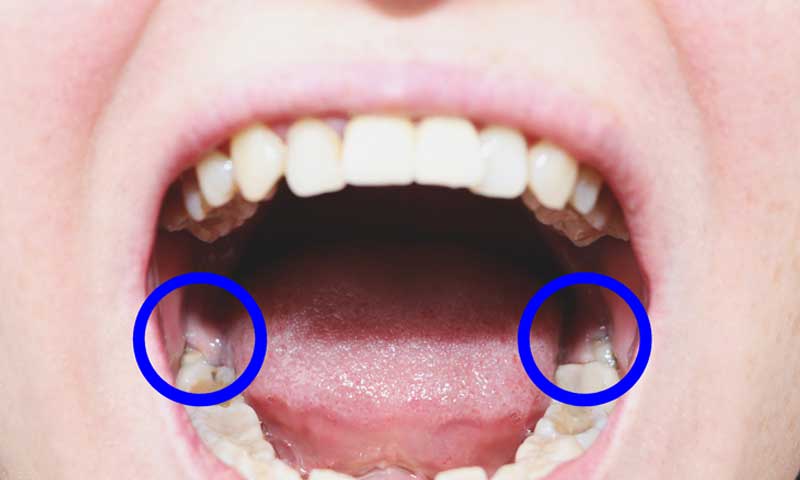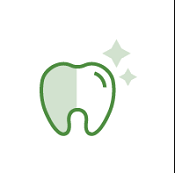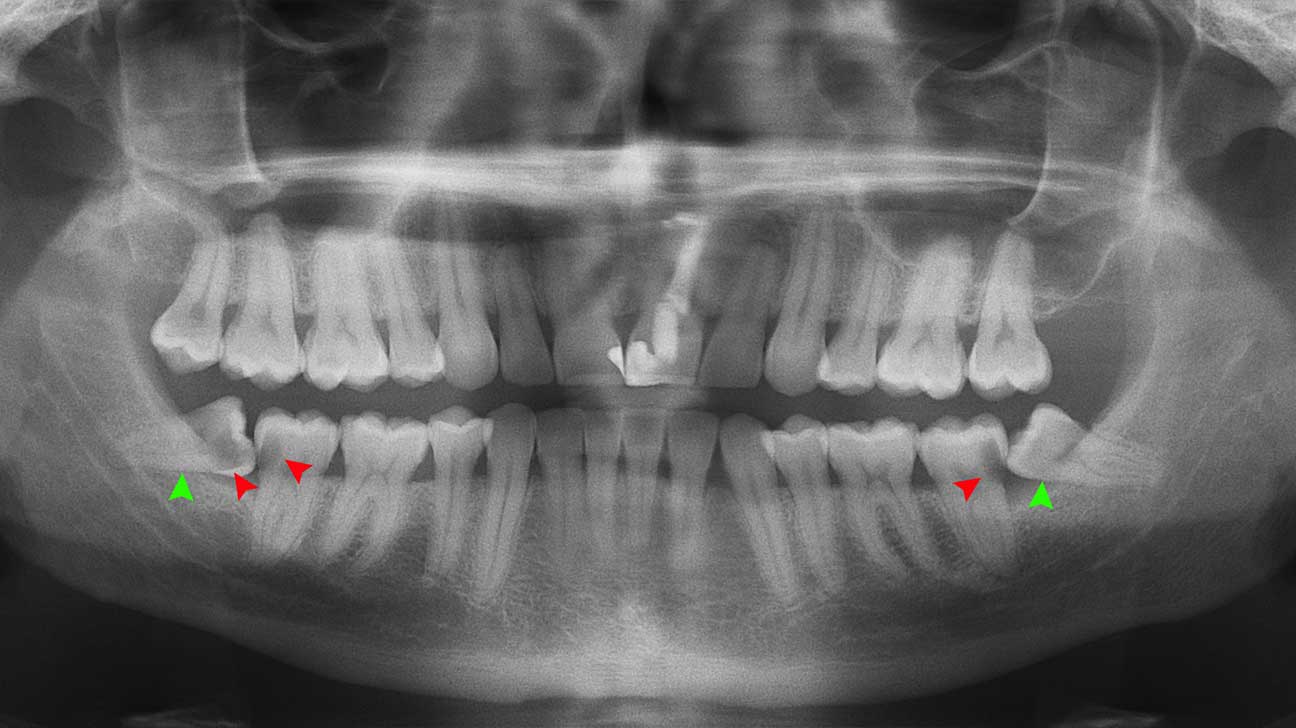Introduction
Wisdom teeth, also known as third molars, are the last set of teeth to emerge in the back of the mouth. In some cases, these teeth may not have enough space to fully erupt or develop properly, leading to a condition called impacted wisdom teeth. This can cause various symptoms and complications, requiring prompt attention and treatment. In this blog post, we will explore the symptoms associated with impacted wisdom teeth and discuss the available treatment options.
What are Wisdom Teeth?
Wisdom teeth, also known as third molars, are the last set of teeth to emerge in the back of the mouth. They typically appear between the ages of 17 and 25, a time when individuals are said to have gained wisdom, hence the name. However, these teeth often cause problems due to their late arrival and limited space in the mouth.
What Does it Mean to Have Impacted Wisdom Teeth?
Impacted wisdom teeth occur when these molars do not have enough space to fully emerge or develop properly. As a result, they remain partially or completely trapped within the jawbone or gum tissue. This condition can lead to various symptoms and complications.
Common Symptoms of Impacted Wisdom Teeth
1. Jaw pain and swelling: Impacted wisdom teeth can cause pain and swelling in the jaw area. This discomfort may be constant or intermittent.
2. Tender or bleeding gums: The gums around impacted wisdom teeth may become tender, swollen, or bleed easily.
3. Bad breath or unpleasant taste: Bacteria can accumulate around partially erupted wisdom teeth, leading to bad breath or a persistent unpleasant taste in the mouth.
4. Difficulty opening the mouth: Impacted wisdom teeth can make it challenging to fully open the mouth or chew properly.
5. Headaches or earaches: The pressure and inflammation caused by impacted wisdom teeth can result in headaches or earaches.
6. Crowding or shifting of teeth: When wisdom teeth try to emerge but lack space, they can push against neighboring teeth, causing crowding or shifting.
Treatment Options for Impacted Wisdom Teeth
1. Observation: If impacted wisdom teeth are not causing any symptoms or complications, a dentist may recommend monitoring them regularly to ensure they do not cause future problems.

2. Extraction: The most common treatment for impacted wisdom teeth is extraction. This procedure involves removing the affected teeth surgically. Extraction may be necessary if the teeth are causing pain, infection, damage to adjacent teeth, or other oral health issues.
3. Antibiotics: In cases where impacted wisdom teeth are causing infection or inflammation, a dentist.
Summary
Impacted wisdom teeth occur when the third molars do not have enough room to grow normally. This can result in a range of symptoms, including pain, swelling, and infection. If left untreated, impacted wisdom teeth can lead to more serious complications such as tooth decay, gum disease, and damage to adjacent teeth. Treatment options for impacted wisdom teeth include extraction, which is the most common approach. Extraction may be performed by a general dentist or an oral surgeon, depending on the complexity of the case. In some instances, if the impacted teeth are not causing any problems, a dentist may recommend monitoring the situation closely rather than immediate extraction. Regular dental check-ups and X-rays are essential for detecting and managing impacted wisdom teeth effectively. If you are experiencing any symptoms or suspect you may have impacted wisdom teeth, it is crucial to consult with a dental professional for an accurate diagnosis and app check over here ropriate treatment plan.
- Q: What are impacted wisdom teeth?
- A: Impacted wisdom teeth are third molars that do not have enough space to fully emerge or develop normally.
- Q: What are the symptoms of impacted wisdom teeth?
- A: Symptoms of impacted wisdom teeth may include pain, swelling, jaw stiffness, bad breath, difficulty opening the mouth, and gum infections.
- Q: How are impacted wisdom teeth diagnosed?
- A: Impacted wisdom teeth can be diagnosed through dental examinations, X-rays, and imaging tests.
- Q: What are the treatment options for impacted wisdom teeth?
- A: Treatment options for impacted wisdom teeth include extraction, especially if they cause pain, infections, or other dental problems.
- Q: Is extraction the only solution for impacted wisdom teeth?
- A: Extraction is the most common treatment, but in some cases, if the impacted teeth are not causing any problems, a dentist may recommend monitoring them regularly.
- Q: How is the extraction of impacted wisdom teeth performed?
- A: The extraction of impacted wisdom teeth is typically performed by a dentist or oral surgeon under local anesthesia or sedation. The procedure involves making an incision, removing any bone blocking the tooth, and extracting the tooth.
- Q: What is the recovery process like after wisdom teeth extraction?
- A: The recovery process may involve swelling, pain, and discomfort, which can be managed with pain medications, ice packs, and following post-operative instructions provided by the dentist.
- Q: Are there any complications associated with impacted wisdom teeth?
- A: Yes, impacted wisdom teeth can lead to various complications such as tooth decay, gum disease, cysts, and damage to adjacent teeth.
- Q: Can impacted wisdom teeth cause crowding of other teeth?
- A: In some cases, impacted wisdom teeth can exert pressure on adjacent teeth, causing crowding or shifting of teeth.

Welcome to my website! My name is Jonathan Northcote, and I am a dedicated and experienced Dental Technician specializing in Dental Beautification, Wisdom Tooth Extraction, and Teeth Grinding Solutions. With a passion for creating beautiful smiles and improving oral health, I am committed to providing exceptional dental care and solutions to my patients.

